Jharkhand High Court
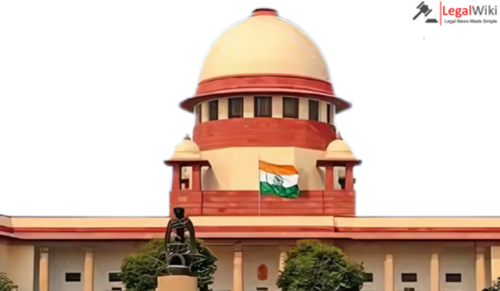
Supreme Court Dismisses Appeals in Actress Prathyusha Death Case, Upholds Abetment Conviction
The Supreme Court of India has dismissed appeals in the 23-year-old death case of Telugu/Tamil actress Prathyusha, ruling out allegations of murder and rape.
A Bench of Justices Rajesh Bindal and Manmohan held that consistent eyewitness accounts and medical evidence established death by poisoning. The Court noted that Prathyusha and her boyfriend, Gudipalli Siddhartha Reddy, had consumed poison amid opposition to their relationship, though Reddy survived.
Rejecting the defence of accidental intake, the Court found Reddy guilty of abetment to suicide for procuring the poison and directed him to surrender within four weeks.
It also termed the postmortem conducted by Dr. Muni Swamy unprofessional.
[Gudipalli Siddharta Reddy v. State (C.B.I.)]
VishwaBookmark
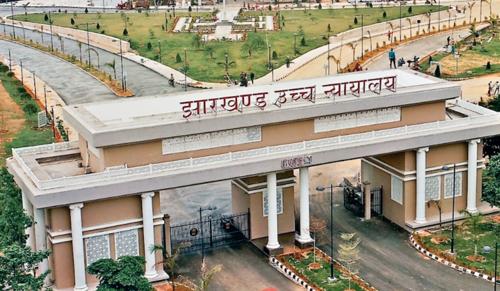
Jharkhand High Court Orders FIR over HIV-Infected Blood Transfusions to Children
The Jharkhand High Court directed registration of an FIR after five children suffering from thalassemia were allegedly infected with HIV due to transfusion of contaminated blood.
Justice Gautam Kumar Choudhary held that when a complaint discloses a serious cognisable offence, police are duty-bound to register an FIR without delay.
The Court noted that infected blood falls within the ambit of “spurious drugs” under the Drugs and Cosmetics Act, 1940, attracting criminal liability. Emphasising the vulnerability of the affected children from marginalised backgrounds, the Court ordered immediate action upon a written complaint.
The Court listed the matter for compliance review on February 18, 2026.
[Deepika H & Ors. v. State of Jharkhand & Ors.]
MananBookmark

Supreme Court Requests Jharkhand High Court to Consider Advocate’s Apology in Contempt Case
The Supreme Court requested the Jharkhand High Court to sympathetically consider the unconditional apology of an advocate facing suo motu criminal contempt proceedings over a heated courtroom exchange.
A Bench led by CJI Surya Kant observed that while judicial authority must be respected, professional friction can arise during court proceedings.
The Court noted that the advocate had expressed remorse and was willing to tender an unconditional apology.
Disposing of the petition, the Supreme Court granted liberty to the advocate to file an affidavit of apology before the High Court and requested the contempt bench to pass appropriate orders after due consideration.
[Mahesh Tiwari v. The Registrar General of the High Court of Jharkhand]
MananBookmark

Jharkhand High Court Orders Guidelines to Tackle Child Trafficking by ‘Outsiders’
The Jharkhand High Court held that rising incidents of child trafficking in the State require immediate systemic intervention by the authorities.
The Court observed that traffickers often enter Jharkhand from other States under the garb of doing business and engage in serious criminal activities, including human trafficking.
It noted serious lapses in investigation, including the delayed constitution of a Special Investigation Team years after the FIR was lodged. The Court linked child trafficking to long-term physical, psychological, and social harm to victims.
It directed the State Home Department to frame guidelines for identification of outsiders and mandatory police permission.
[Chandramuni Urain v. Director General of Police, Jharkhand & Ors.]
MananBookmark

“Prima Facie Corrupt”: Jharkhand High Court Orders CBI Probe against JUT & AICTE over Student Non-Registration
The Jharkhand High Court held that the actions of the Jharkhand University of Technology and AICTE prima facie reflected corrupt practices that endangered the academic future of students.
The Court observed that despite AICTE granting approval for the 2025–26 academic session, JUT failed to grant affiliation and register 60 diploma students, effectively trapping them without examination rights.
It noted that students were admitted under valid approval but left in an uncertain position.
The Court directed the CBI to investigate how the students were trapped and identify the role played by the authorities, and ordered submission of a sealed report within two weeks.
[Dhanbad Institute of Technology v. State of Jharkhand & Ors.]
MananBookmark
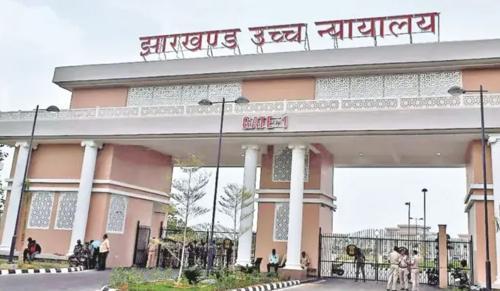
Sharing Wife’s Pre-Marriage Photos with Family is Mental Cruelty: Jharkhand High Court
The Jharkhand High Court granted divorce to a woman, holding that humiliating a wife over pre-marriage photographs amounts to mental cruelty.
The Court found that the husband accessed the wife’s Google Drive, transferred photographs from her past relationship, and shared them with his family members, leading to her humiliation and character assassination. It held that such conduct caused deep mental agony, making cohabitation impossible.
Emphasising that marriage is founded on trust and respect, the Bench observed that once trust is broken, it is irreparable. Though physical assault was not proved, the Court clarified that cruelty can be psychological.
The Court granted divorce under Section 13(1)(i-a) of the Hindu Marriage Act.
Thanush SBookmark
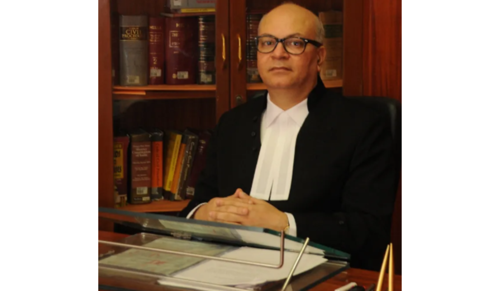
Justice Mahesh Sonak Appointed As Next Chief Justice of Jharkhand High Court
The law ministry on January 2, 2026, issued a notification appointing Justice Mahesh Sharadchandra Sonak, currently a Bombay High Court judge, as the next Chief Justice of the Jharkhand High Court.
He is set to assume charge after incumbent Chief Justice Tarlok Singh Chauhan demits office on January 8 upon attaining the age of 62.
His name was recommended by the Supreme Court Collegium last month, which also proposed four other judges for leadership roles in various High Courts.
Justice Sonak was appointed as a Bombay High Court judge on June 21, 2013, and is due to retire on November 27, 2026.
Thanush SBookmark

Compensation for Demolished Houses Must Be Recovered From Erring Officials, Not State: Jharkhand High Court
The Jharkhand High Court directed the registration of FIRs and investigation by the Anti-Corruption Bureau against officials responsible for allowing illegal constructions and encroachments on land acquired for the Rajendra Institute of Medical Sciences (RIMS).
The Court held that residents whose houses were later demolished due to such encroachments are entitled to compensation.
However, it clarified that the compensation must be recovered from the erring officials and builders who permitted or facilitated the illegal constructions, and not from the State exchequer.
The Court also ordered initiation of departmental proceedings to fix accountability. The matter is listed for further hearing.
[Jyoti Sharma v. State of Jharkhand]
MahiraBookmark

Jharkhand High Court Orders Inspection of Jails to Examine Quality of Food Provided to Inmates
The Jharkhand High Court has taken suo motu cognizance of the poor quality of food being served to inmates across various district jails in the State. The court further directed all DLSA and JHALSA to conduct surprise inspections to verify whether meals are being supplied as per the Jail Manual.
The proceeding stems from a newspaper report highlighting the substandard meals being provided, emphasizing that adequate nutrition is a fundamental right of all prisoners, regardless of their legal status.
A division bench of was informed by the State's counsel that the "quality of food has been improved and now, they are being provided with the food as per the jail manual".
[Akash Kumar Roy v. National Investigating Agency]
YashashviBookmark

Jharkhand High Court: Criminal Revision Petitions Maintainable Despite Sessions Court Jurisdiction
The Jharkhand High Court has held that criminal revision petitions remain maintainable even when concurrent jurisdiction exists with sessions courts.
However, as a matter of judicial discipline, the High Court will ordinarily refrain from exercising its inherent powers if an equally efficacious remedy is available before the Sessions Judge.
The court clarified that revisional powers under Section 397 CrPC can be invoked directly before high courts in appropriate cases, notwithstanding the availability of alternative remedies at lower judicial levels.
On the facts of the case, the High Court dismissed the revision petition, while granting liberty to the petitioners to approach the Sessions Judge.
[Shree Kumar Lakhotia v. State of Jharkhand]
YashashviBookmark
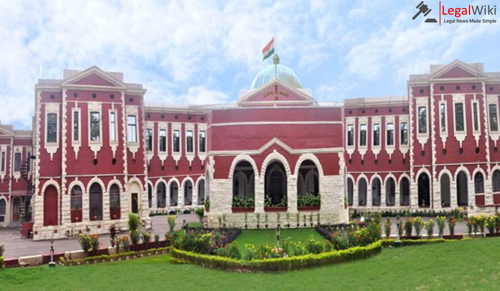
Jharkhand High Court Rules SMA Prevails Over Personal Law in Restitution Case
The Jharkhand High Court held that a husband who married under the Special Marriage Act, 1954, could not invoke Muslim personal law to seek restitution of conjugal rights.
The petitioner contended that his personal law permitted multiple marriages and that the respondent had been aware of these rights.
The High Court rejected the argument and clarified that once parties registered their marriage under the Act, the statutory framework exclusively governed all matrimonial rights and obligations.
The Court noted that the petitioner had also suppressed an earlier marriage and a child, and upheld the Family Court’s dismissal of the restitution petition on grounds of concealment and lack of legal merit.
[Md Akil Alam v Tumpa Chakravarty]
3 months ago
Thanush SBookmark
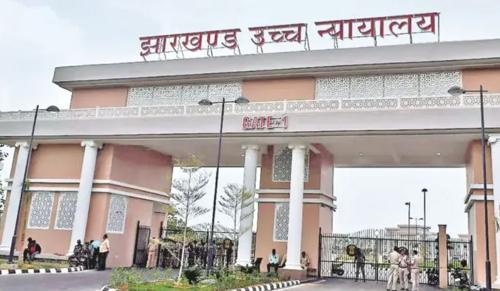
Lawyer Faces Suo Motu Contempt for Heated Exchange with Judge: Jharkhand High Court
The Jharkhand High Court initiated suo motu criminal contempt proceedings against advocate Mahesh Tewari after a viral video showed him in a heated argument with a single judge during a hearing.
The incident took place in a case concerning the disconnection of a woman’s electricity supply over unpaid bills. The lawyer sought leniency on humanitarian grounds, but the judge insisted on following legal precedent.
A five-judge bench led by Chief Justice Tarlok Singh Chauhan took cognisance of the conduct and listed the contempt hearing for November 11, 2025.
A detailed order is awaited.
[Court on its own motion v Mahesh Tewari]
MamiraBookmark

Jharkhand High Court Orders Framing of Guidelines for HIV Testing and Treatment of Prisoners
The Jharkhand High Court has directed the State government to issue and implement guidelines for HIV testing and treatment of prisoners under the framework of the HIV and AIDS (Prevention and Control) Act, 2017.
The order was passed by a Division Bench that was hearing a criminal appeal filed by a convict who refused to undergo an HIV test upon being admitted to the jail.
Referring to Section 13 of the Act, which empowered the Central or State government to take measures to prevent the spread of HIV/AIDS. The Court directed that the proposal be placed on record within six weeks.
[Mithilesh Kumhar @ Mithilesh Pandit v State of Jharkhand]
KhushaliBookmark

Jharkhand High Court Slams Govt for Failing Plastic Ban, Orders Strict Enforcement
The Jharkhand High Court has directed state authorities to strictly implement the plastic ban across the state, criticising their complete failure in enforcing the environmental legislation.
The Jharkhand High Court has held that corruption, lack of infrastructure, and weak enforcement have rendered the State's ban on plastic carry bags and single-use plastics ineffective.
The court ordered the formation of special monitoring committees and mandated regular compliance reports, noting that widespread plastic pollution continues to damage Jharkhand's ecosystem despite the existing legal prohibition.
YashashviBookmark

Jharkhand High Court Flags Advocate’s Threat to Judge as “Deprecable,” Refers Matter to State Bar Council
The Jharkhand High Court, led by Justice Sanjay Kumar Dwivedi, directed the State Bar Council to take action against advocate Rakesh Kumar for threatening the judge after the rejection of anticipatory bail pleas in a land-grabbing case.
The Court labelled the lawyer's conduct as “deprecable” and fit for criminal contempt since it undermined judicial dignity and obstructed justice.
The Court noted that such behaviour attacks the entire judiciary’s credibility.
While refraining from contempt proceedings due to requests from senior bar members, the Court emphasised the seriousness of land-grabbing crimes in Jharkhand and upheld the bail rejection.
[Anil Kumar & Ors v State]
MalavikaBookmark
